|
Last year had some amazing highs, but I had some trying health and other struggles at times, and it is always hard to write in a vital congregational placement (especially with the demands of my pioneering ministry) so I'm very grateful for the encouragement and patience of Elenie Poulos and Kate Gleeson (co-editors) in enabling me to contribute an article to a small collection of essays on 'Religion and Politics after marriage equality: contemporary challenges in religious freedom'. My essay (which can be accessed here), built out of the tough experience of some of us, focuses on the marginalisation of transgender people and queer people of faith in queer activism and mainstream Australian churches during and after the Australian marriage-equality plebiscite. I entitled it: 'Climbing out from being thrown under the bus: queer faith futures in a transphobic political world'...
0 Comments
I was told this morning that David Ould (the vocal Senior Associate Minister of the Anglican Cathedral of Parramatta) is once more writing about myself and my marriage and making statements which are a mixture of provocation and exaggeration. This is despite David never having met me, never mind talked to me about this or other things. I will not post a link as I do not like to encourage an audience for his blog. I do wish to state however that several of his statements about my Archbishop and diocese are wrong or misleading and his words should thus be treated as malicious. Sadly - as his column freely admits - such aggression is a consequence of confusion caused by the Australian Anglican Primate's recent action towards another priest (who also happens to be trans, just as some of us have other differing characteristics), particularly the Archbishop's misuse of the term 'same-sex marriage'...
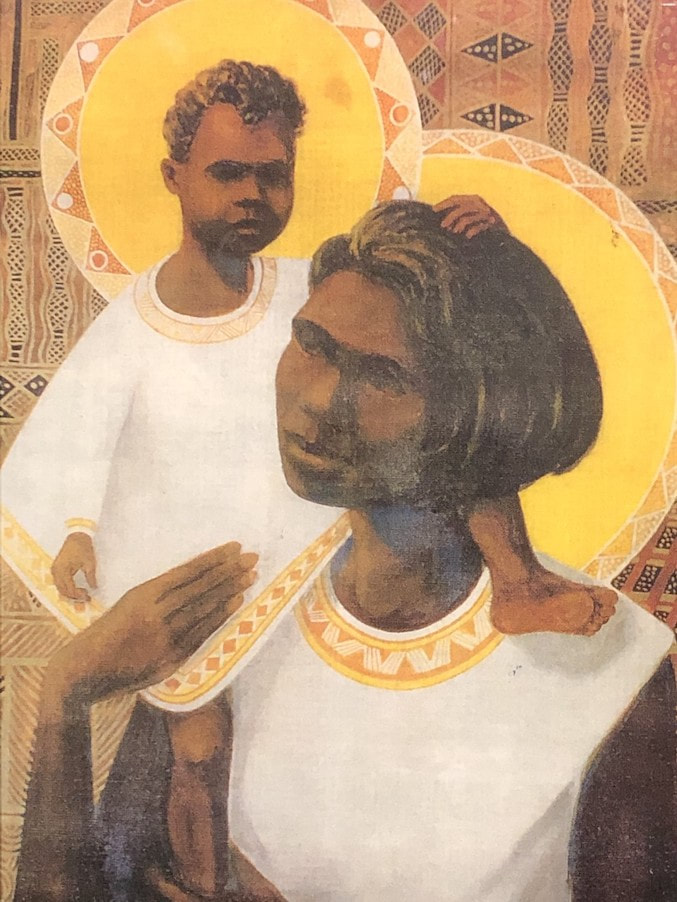 As my wife Penny and I approach our 35th wedding anniversary next month, we are increasingly aware of how our marriage has become one of God's delightful little prophetic jokes to prompt deeper loving awareness. The other day, for instance, we went to a shop in Brisbane to see if we could buy some dresses for our upcoming renewal of vows event. I found a splendid one I liked quite quickly and the shop assistant asked me if it was for a special occasion. 'Yes', I said, 'Penny and I are renewing our vows in a few weeks time. It will be our 35th wedding anniversary'. The assistant was very professional and just murmured 'how lovely'. For the next few minutes however it was very evident that the cogs were whirring in her brain. Clearly I 'passed' more than well enough for her to be considerably puzzled how two women could be marking 35 years of official marriage. Maybe she wondered if we came from some country she hadn't heard of which had quietly adopted marriage equality decades before others. Perhaps she pondered if there was some special lesbian rite she had never imagined. Whatever the case, as for others in society, and certainly within church circles, our fully sanctioned and richly flourishing marriage had stirred the pot. Once again Penny and I were a gentle loving challenge to preconceptions and an invitation to more expansive relationships and celebration of life... 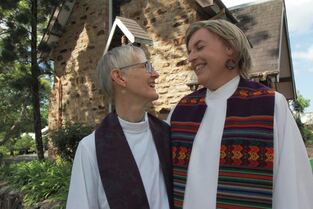 ‘I didn’t marry a gender. I married a person.’ - this has always been a truth of our marriage, before and after Josephine came out as a transgender woman. Just as God ‘looks on the heart’ not ‘outward appearance’ (1 Samuel 16.7), our gender and sexuality are not the core of our lasting relationship. What matters is the love we have for one another, part of God’s greater love. In that way, ‘rainbow marriage’ is also a gift for all... 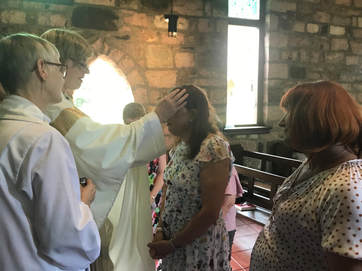 Some days we can glimpse why we were put on this earth. Yesterday was one such moving moment for me, as I led a short rite for a soul friend preparing for gender affirmation surgery. We made no extra special great fuss about this. Nor should we have to, for such signs of grace for LGBTI+ people are really very natural, if our world would but allow itself to know it. Yet it was profoundly significant in the journeys we are making at this time. For today's sea-change of understanding gender and sexuality not only brings healing and hope to specific individuals. It also offers vital hope and healing to tired aspects of our society, not least to religious groups and their members. In a profound sense it is thus sacramental: helping to reveal what has been hidden, opening up and helping to sustain fresh pathways of life and transformation. Our short rite yesterday was like that. It publicly honoured deep movements of life and spiritual wrestling which have not only been unacknowledged and unsupported, but often tragically dismissed and disastrously resisted. It also proclaimed that new life for all of us is to be found in the tender solidarity of us all, in the mystery of God's extraordinary and abundant grace and diversity. Our 'transgender' rite was just a small part of our usual Milton Anglicans Sunday parish eucharist. As such however, it was no 'hole in the wall' secret ceremony, but a truly grounded and open affirmation both of a remarkable sacred particular person and of our growing sense of what it means to re-create community and 'church' today. It felt like a renewing movement of spirit for our community, certainly for my own sense of priesthood, and a re-presentation of what it means to be differently ordered bodies together in the body of Christ. It also made us wonder why such things are not expected in the life of all spiritual communities... 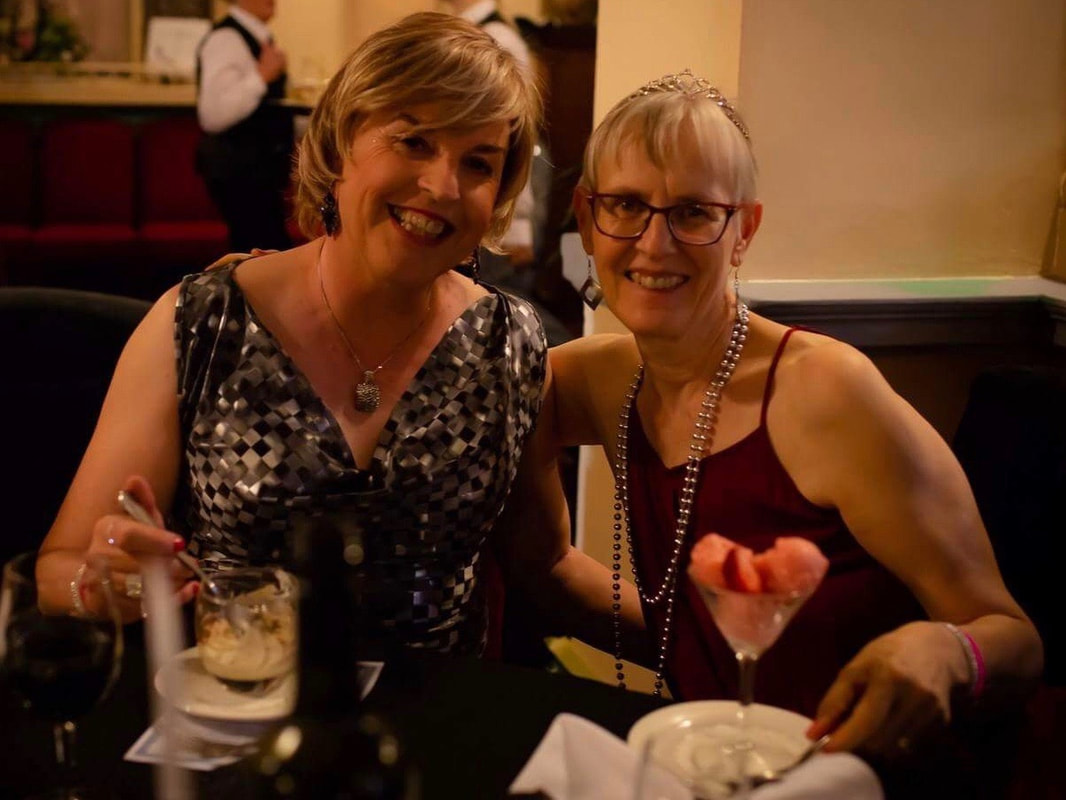 In times to come it will be extraordinary to imagine that some Christians insisted on married transgender people divorcing if they wished to claim their full identity. How scandalous a betrayal of God's love and Christ's teaching this is! It has been a long journey to address this in secular law in Australia and, sadly, the battle is not over in some religious quarters as well as in many parts of the world. Queensland, in which I now live, thankfully finally changed its law last night (with only four votes against, from the fringe Katter and One Nation parties). Hitherto, married transgender people have had to divorce if they changed their birth certificate to their true gender. I rejoice for friends and others who will directly benefit from this. For I know the pain this law has caused and have personally therefore lobbied hard for change. It will also be an encouragement for other necessary steps forward and for more religious people to come to their senses and renew their understanding both of marriage and of people of gender diversity. I write this with feeling, as well as after deep reflection on these subjects. For the status of my own marriage is under question in some slowly moving and blinkered parts of the Church, even in Australia itself. A leading member of the Anglican Diocese of Sydney for example has even gone so far as to challenge both my marriage and the ministry of my wife and I as 'living contrary' to the doctrine of Christ - see further transgender and the doctrine of marriage in Brisbane. Of course, in that instance, the aim is a distinctly political one: to attack my archbishop, my diocese and the mainstream pastoral approach and unfolding theology of the Anglican Communion as a whole. Yet such 'stop the world, we want to get off' thinking will not work. The ground is shifting in religious spheres too, as the actual lived experience of transgender people and their loved ones is gradually being revealed. Anglicans and other Christians across the world are responding, if sometimes hesitatingly, burdened as we are too much by our often exacting processes and the frenzied reactions of some. The Church of England for example, the church of my birth, has declared that it fully welcomes me and other transgender people, at every level of its life. As its leadership have expressed it (with my emphasis): The House of Bishops welcomes and encourages the unconditional affirmation of trans people, equally with all people,within the Church, the body of Christ,and rejoices in the diversity of that one body, into which all Christians have been baptized by one Spirit. My concern however is not with politics but with the love of God in people's lives. For, in some ways, in the face of such great odds, transgender people are still 'living miracles' even to exist at all - and some of us, tragically, do not make it. Our relationships are also always challenged, and sometimes shattered, by becoming more fully the people God has created and called us to be. The misery of rejection some of my gender diverse friends endure cuts me to the heart. So why would we not seek to strengthen those relationships which have not only worked through demanding change but have emerged stronger? In my case, and in others I know, my marriage is so much deeper for the full truth we live together. My wife could long see that we were suffering unnecessarily for years: 'where has Josephine gone?' she would say when I struggled to come to terms with myself. She knew, better than I, what I, and we together, needed. No marriage is 100% perfect, and I do not pretend to be a moral paragon in my relationships in the past or present, but it is insulting, as well as disappointing, when fellow Christians cannot recognise that my marriage, of 33 years to date, is not a rich example of God's sacramental love to the world (nb. that is my wife and I above in case such a picture is needed). In transitioning, I and others have not chosen (as has been alleged) 'to challenge the Biblical view of marriage' or to place my archbishop, or any one, 'in a difficult position'. Rather, we have simply sought to respond more fully, faithfully, with the whole of our being (as human beings, Christians, and priests), to the love of God for us. Of course, this means that we need to renew some aspects of received understanding. That however is the history of Christianity, as well as that of humanity as a whole, as we have developed our theology of marriage over 2000 years: working through inherited patriarchy and polygamy, rejecting women's subordination (and, for most of Christian history, lack of legal rights), developing compassion and legal recourse for those trapped in violent or unhealthy marriages, and embracing what is good in companionate relationship. Moving beyond the pressing past survival and scarcity preoccupations which informed obsessions with procreation and cis and hetero-normativity, our liturgies today increasingly reflect the wisdom we have gained and the love to which we aspire. There is a desperate resort of late to seeking proof-texts, such as Genesis 1.27 and Matthew 19.5, which may turn back the waters. However, apart from the inability of such texts to be bear the strain (even when isolated from their context and the weight of scholarship), this only confirms such Christianity as a latter day Canute, fruitlessly resisting a sea-change of love and affirmation. I therefore urge all people of faith similarly to affirm unconditionally the lives, marriages and loving relationships of transgender people. Rather than be anxious, never mind put stumbling blocks in our lives (or worst still 'conversion' therapies), why not work with us at providing appropriate pastoral resources to strengthen our relationships? We certainly need them. Listen, educate, and above all hear and affirm the love and faith we have to share. It is astonishing to me that Christians would not want to see healing and the renewal of such love for others. Marriage, like the sabbath, as Jesus might have said, is not made to subjugate the wondrous diversity of human life into a constricting bed of pain. Marriage, at least for Christians, is made for God's renewing of humanity. How do you picture a new beginning - or. alternatively, offer a revelation of eternal (re)creation? As an epic year of many new beginnings in my family's life comes towards a close, it was terrific today to find this picture from the art exhibition we held in St Luke's Toowoomba a year ago. Entitled Mary walks with Eve (A New Dawn), it was painted (in oil) by Toowoomba artist Cindy Duncan. It was but one of many wonderful different views into the Advent and Christmas story which that exhibition encouraged us to explore. How does it then speak to you, I wonder? For me, it is a beautiful female expression of the new dawn, or new creation, which we find spiritually and symbolically in the Judaeo-Christian story. Of course Cindy is not the first to pick up on the idea of Mary as the New Eve (a theme which can be found in much Christian feminism from its first wave onwards). I love this particular portrayal however, especially for the tenderness of the exchange between Eve and Mary, and for the sparkle (of course!), stars and Spirit (symbolised by the dove) which speak of new creation (linking past, present and future, in a very humble and accessible, yet powerfully cosmological manner). The two trees offer a different kind of balance than some, often very harsh and crude, traditional 'male' portrayals of a very singular tree of life. Like the 'northern lights' (and their declaration/promise of eternal light), the colours of the (heavenly) background also dance into the (earthly) foreground as the two women connect. Above all perhaps, it is an image of fruitfulness, with Eve still holding the apple and adorned with a garland and her flowing locks, and Mary's pregnant form promising a rich new unfolding. Even the snake is a colourful green and Mary's foot upon it a less violent redemptive check than many others. In recapitulating, and transforming, the so-called theological "Fall', this is not therefore about judgement and destruction, but mercy and renewal. In Mary there is thus a gathered stillness as she meets the moving vulnerability of Eve, and there is a deep acceptance of one another and all they are: a mutual encounter of a very human but divinely healing and enriching kind. At the end of a year of great upheavals, in many of our personal lives and publicly (not least in relation to marriage equality and LGBTI+ affirmation), it is a delightful vision of both same sex/gender love and the divine feminine at work. It certainly speaks deeply and intimately to me about how God in Mary has met, and continues to meet, the Eve in me. May it therefore be a further blessing to others this Christmas and to all who need transformation.
 "So how do you cope with your enemies?', asked my spiritual director recently. I laughed, with a mixture of emotions. 'Well, I certainly realise I have plenty now', I replied! For you don't have to be paranoid to recognise when some people are out to get you. It is particularly sad however when they are part of your own faith tradition... |
AuthorThe Revd Dr Jo Inkpin: Archives
March 2024
Categories
All
|
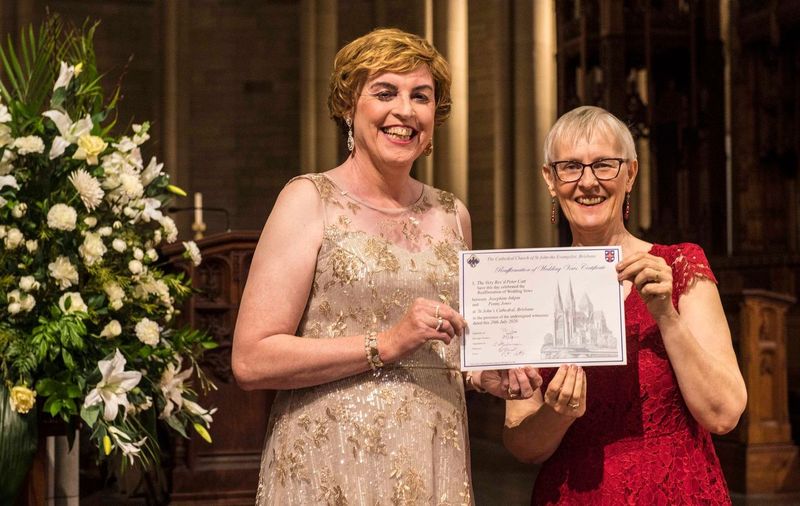
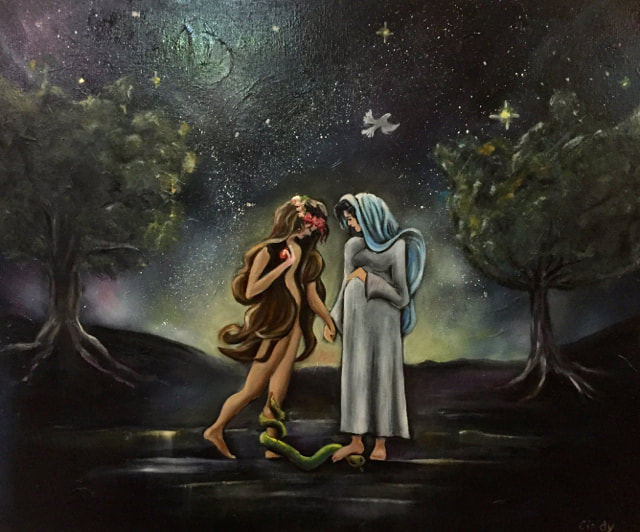
 RSS Feed
RSS Feed